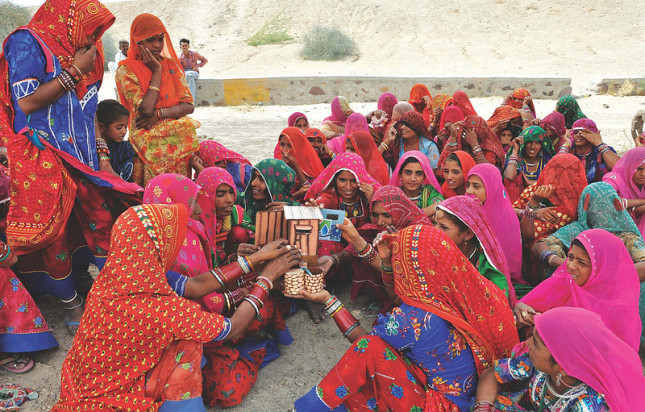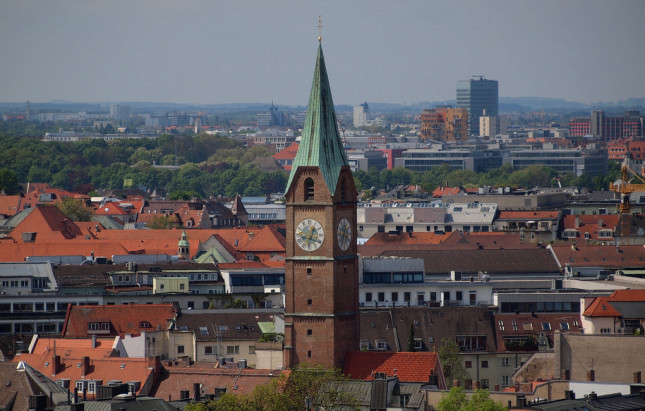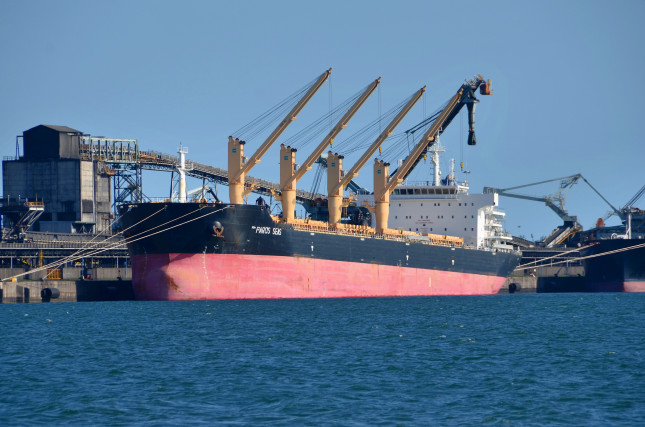-
How Gender and Climate Change Can Be Integrated Into Military Operations (Book Preview)
› As the United States develops a strategy to guide all military services on how to promote the participation of women in conflict prevention, management, and resolution, and to better protect women and girls in situations involving armed conflict, it could supplement the work already being done in the Department of Defense by studying the examples of other countries and international organizations. When shaping its framework, it should also consider the links between conflict, women, and climate change in developing best practices.
As the United States develops a strategy to guide all military services on how to promote the participation of women in conflict prevention, management, and resolution, and to better protect women and girls in situations involving armed conflict, it could supplement the work already being done in the Department of Defense by studying the examples of other countries and international organizations. When shaping its framework, it should also consider the links between conflict, women, and climate change in developing best practices. -
Planning for the Public Health Effects of Climate Migration
›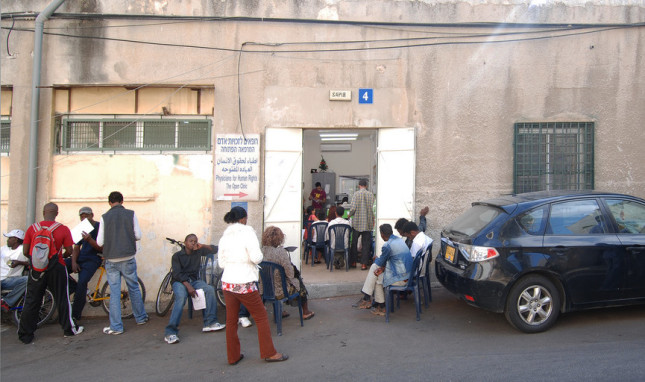
In Alaska’s arctic communities, Inuit contemplating the need to relocate have reported that the loss of sea ice would make them feel like they are lost or going crazy. Zika and other vector-borne diseases have been a concern primarily for people in the southeastern United States. Recent research on the long-range internal migration of people from the coasts to the interior suggests a broader national concern regarding “climate augmentation” of disease. These are just two examples of the many public health effects we can expect as climate change forces people to uproot themselves.
-
Sandra Ruckstuhl on Capturing Practical Lessons on Water, Conflict, and Cooperation
›Friday Podcasts // Water Stories (Podcast Series) // December 14, 2018 // By Kathryn Gardner & Truett Sparkman We realized “there was a need for a toolkit on water,” says Sandra Ruckstuhl in this week’s Water Stories podcast, “with a focus of conflict and conflict mitigation, but also peacebuilding.” Ruckstuhl, a consultant for the World Bank who has researched water programs in Yemen and the Middle East, helped the Wilson Center produce USAID’s Water and Conflict toolkit, which documents examples of successful development interventions focused on water and peacebuilding.
We realized “there was a need for a toolkit on water,” says Sandra Ruckstuhl in this week’s Water Stories podcast, “with a focus of conflict and conflict mitigation, but also peacebuilding.” Ruckstuhl, a consultant for the World Bank who has researched water programs in Yemen and the Middle East, helped the Wilson Center produce USAID’s Water and Conflict toolkit, which documents examples of successful development interventions focused on water and peacebuilding. -
More than Just a BRI Greenwash: Green Bonds Pushing Climate-Friendly Investment
›
From the cultural hub of Lahore down to the bustling ports of Karachi, smog is king in Pakistan, with citizens enduring unhealthy air quality for much of the year. The smog, generated mostly by crop and garbage burning and diesel emissions from furnaces and cars, could get worse by the end of this year when Pakistan opens five new Chinese-built coal power plants, funded by a $6.8 billion venture under the China-Pakistan Economic Corridor (CPEC) initiative. These five plants are just the beginning of the Pakistan government’s planned 7,560 MW expansion in coal power, which are CPEC-energy priority projects. “It’s a perfect storm for a pollution crisis,” said Michael Kugelman of the Wilson Center’s Asia Program. “The poor will continue to burn a variety of polluting materials to produce fuel, and now you’re also going to be introducing dirty coal into the mix. Combine that with crop burning in the countrywide and car exhaust fumes in rapidly growing cities, and you’ve got a really smoggy mess on your hands—and in your lungs.”
-
Book Review: “Making America Green and Safe” Explores History of Sustainable Development and Climate Change
› In his book, Making America Green and Safe: A History of Sustainable Development and Climate Change, Alan Hecht offers an insider’s account of the years that shaped sustainable development and climate change policy in the United States. The arc of Hecht’s career spans the evolution of the modern environmental movement. Serving for more than 40 years in the U.S. government, he devoted his career to environmental protection and sustainable development. The stories he tells reflect his belief that “history is a critical part of future planning.”
In his book, Making America Green and Safe: A History of Sustainable Development and Climate Change, Alan Hecht offers an insider’s account of the years that shaped sustainable development and climate change policy in the United States. The arc of Hecht’s career spans the evolution of the modern environmental movement. Serving for more than 40 years in the U.S. government, he devoted his career to environmental protection and sustainable development. The stories he tells reflect his belief that “history is a critical part of future planning.”
-
Women Are the Secret Weapon for Better Water Management
›December 11, 2018 // By Wilson Center Staff
In the 1980s, the government of Malawi began providing piped water to low-income households in 50 districts, establishing community-run tap committees to collect bills and manage systems. Men made up 90 percent of committee memberships—and problems quickly became apparent.
-
Germany’s Cities and Their Environmental Footprint Are Growing Again
›
Germany aims to be a pioneer in green energy and to fight climate change. Yet recent data suggest that the country has failed to meet its own climate goals. Following the United Nations Sustainable Development Goals, Germany’s “National Sustainable Development Strategy” aimed at a 40 percent reduction in carbon dioxide (CO2) emissions between 1990 and 2020. But emissions will not reach the target, having stalled at 73 percent of the 1990 level since around 2010 and even increased in many regions. The government’s latest progress report states that the 2020 goal is not reachable.
-
Top 5 Posts for November 2018
›
China is installing more renewable energy capacity than any other country in the world. At the same time, its energy market is so large that the coal power capacity it is installing is equal to the entire U.S. coal fleet and is supporting high polluting coal projects in developing countries. Evan Barnard reports on this dichotomy in November’s most read post.
 A Publication of the Stimson Center.
A Publication of the Stimson Center.

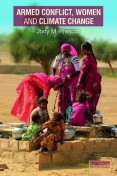 As the United States develops a strategy to guide all military services on how to promote the participation of women in conflict prevention, management, and resolution, and to better protect women and girls in situations involving armed conflict, it could supplement the work already being done in the Department of Defense by studying the examples of other countries and international organizations. When shaping its framework, it should also consider the links between conflict, women, and climate change in developing best practices.
As the United States develops a strategy to guide all military services on how to promote the participation of women in conflict prevention, management, and resolution, and to better protect women and girls in situations involving armed conflict, it could supplement the work already being done in the Department of Defense by studying the examples of other countries and international organizations. When shaping its framework, it should also consider the links between conflict, women, and climate change in developing best practices.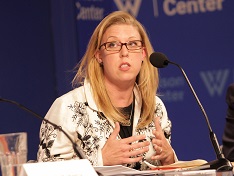 We realized “there was a need for a toolkit on water,” says Sandra Ruckstuhl in this week’s Water Stories podcast, “with a focus of conflict and conflict mitigation, but also peacebuilding.” Ruckstuhl, a consultant for the World Bank who has researched water programs in
We realized “there was a need for a toolkit on water,” says Sandra Ruckstuhl in this week’s Water Stories podcast, “with a focus of conflict and conflict mitigation, but also peacebuilding.” Ruckstuhl, a consultant for the World Bank who has researched water programs in 
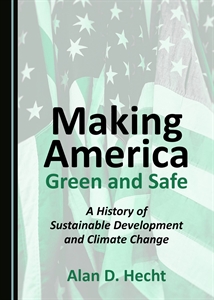 In his book, Making America Green and Safe: A History of Sustainable Development and Climate Change, Alan Hecht offers an insider’s account of the years that shaped sustainable development and climate change policy in the United States. The arc of Hecht’s career spans the evolution of the modern environmental movement. Serving for more than 40 years in the U.S. government, he devoted his career to environmental protection and sustainable development. The stories he tells reflect his belief that “history is a critical part of future planning.”
In his book, Making America Green and Safe: A History of Sustainable Development and Climate Change, Alan Hecht offers an insider’s account of the years that shaped sustainable development and climate change policy in the United States. The arc of Hecht’s career spans the evolution of the modern environmental movement. Serving for more than 40 years in the U.S. government, he devoted his career to environmental protection and sustainable development. The stories he tells reflect his belief that “history is a critical part of future planning.”